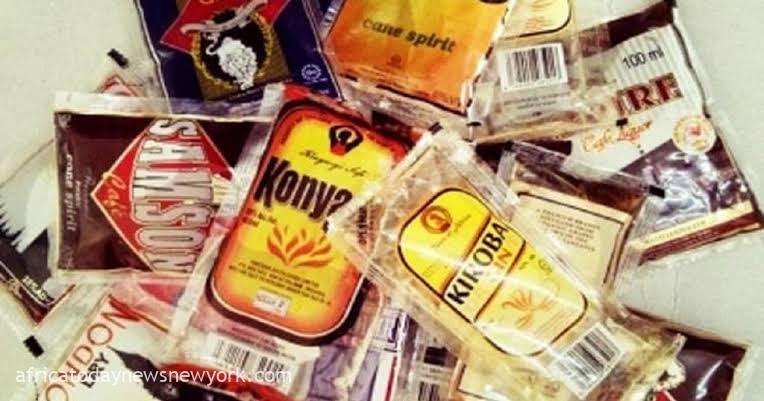The regulatory body, the National Agency for Food and Drug Administration and Control (NAFDAC), noted that the alcoholic concentration in miniaturized containers, specifically those below 200ml, stands at 30 percent.
NAFDAC bucks the trend, questioning the validity of the stated percentage as excessively high, and contrasts it with the comparatively lower alcohol content in beer, which falls between four to eight percent.
The disclosure came to light through an official press statement, provided to our correspondent by Christiana Obiazikwor, the Head of Public Relations at NAFDAC.
The statement was tagged, ‘What Nigerians should know about alcohol in sachet and less than 200 ml PET bottles.’
As of February 1, 2024, NAFDAC officially began enforcing the ban on alcoholic beverages packaged in sachets, PET, and glass bottles of 200ml and below.
During a press briefing in Abuja, Prof Mojisola Adeyeye, the Director-General of the agency, emphasized that as of January 31, 2024, no beverages falling under this category had been officially registered with the agency.
Read also: Pandemonium As Hoodlums Attack NAFDAC Officials In Abuja
‘The agency commenced nationwide enforcement actions on February 1, 2024, to enforce the implementation of the new policy,’ she said.
Adeyeye’s statement stirred persistent protests from both distillers and labor unions, with apprehensions voiced that the decision could potentially lead to unemployment for 500,000 workers.
The agency in the statement, however, said, “NAFDAC did not ban alcohol production in bigger bottles. The Agency only banned alcohol in containers or packing that a child can easily conceal, I.e., sachet or PET bottles less than 200ml
‘The alcoholic content in sachet or PET bottles less than 200ml is 30 per cent. Beer has four to eight per cent alcohol.’
‘The Association of Food, Beverage & Tobacco Employers and Distillers and Blenders Association of Nigeria signed an agreement with MOH and NAFDAC in December 2018 that they will phase out production of alcohol in sachet and PET bottles less than 200 ml by January 31, 2024. The agreement document is available. A five-year phase-out notice should be sufficient.’
The agency noted that Nigeria was one of the 193 Member States of the World Health Organisation that reached a historical consensus on a global strategy to reduce the harmful use of alcohol by adopting resolution WHA63.13 at the Sixty-third session of the World Health Assembly, held in Geneva in 2010.
‘This was seven years before my time, an agreement signed by Nigeria with other nations that we will protect youth by making alcohol not easily reachable and accessible,’ it added.
Adeyeye cautioned that the primary vulnerable groups exposed to the adverse effects of consuming the prohibited sizes of alcoholic beverages include underage individuals, as well as commercial vehicle drivers and riders.
